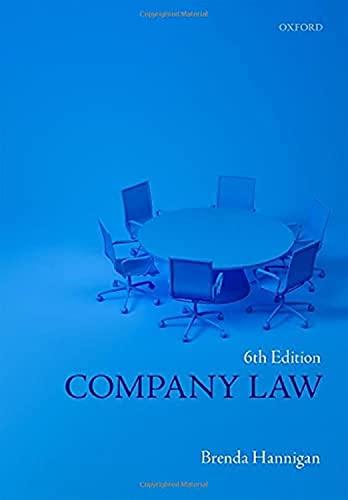1.The Statute of Frauds requires that all contracts be in writing. True or false 2.All contracts for the sale of goods must be in writing.
1.The Statute of Frauds requires that all contracts be in writing. True or false
2.All contracts for the sale of goods must be in writing. True or false
3.An example of a unilateral mistake is a typographical error. True or false
4.In a breach of contract action, damages that help to make up for the loss caused by the breached contract are called: a)liquidated damages b)punitive damages c)compensatory damages d)mitigated damages
5.Each of the following is an example of an equitable remedy in a breach of contract action except: a)specific performance b) injuction c)rescission and restitution d)compensatory damages
6.An award of nominal damages is usually $100.00. true or false
7.The non-breaching party is required to mitigate damages. True or false
8.In a breach of contract action, consequential damage are typical future damages that arise as a consequence of the breach. True or false
9.It is always wise to get contractual agreements in writing. True or flase
10.Under the contract law, mitigation means to make damages less. True or false
Step by Step Solution
There are 3 Steps involved in it
Step: 1

See step-by-step solutions with expert insights and AI powered tools for academic success
Step: 2

Step: 3

Ace Your Homework with AI
Get the answers you need in no time with our AI-driven, step-by-step assistance
Get Started


